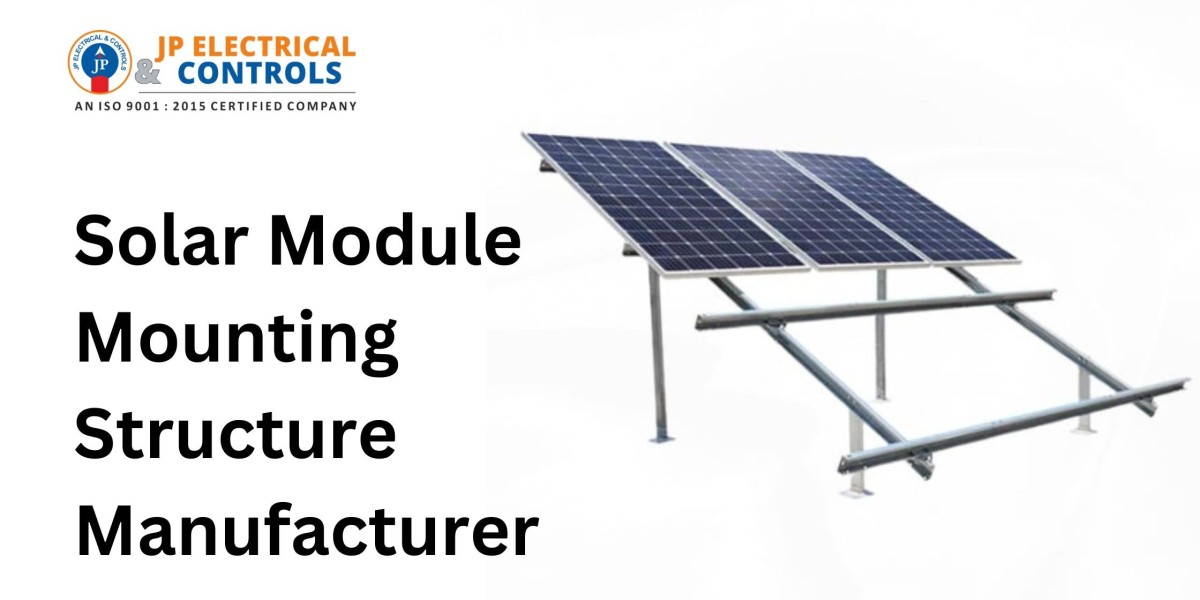In the world of renewable energy, solar power has emerged as a frontrunner in providing clean, sustainable, and cost-effective solutions for our ever-increasing energy needs. As the demand for solar energy continues to rise, the technology behind solar modules and their mounting structures has become a critical factor in optimizing energy production and ensuring the longevity of solar installations. In this comprehensive article, we delve into the intricacies of solar module mounting structure and shed light on JP Electrical & Controls, a leading control panel manufacturer, and their innovative contributions to this field.
Understanding Solar Module Mounting Structures
The Backbone of Solar Installations
Solar module mounting structures, often referred to as solar racking systems or solar panel mounts, serve as the backbone of any solar installation. These structures are designed to securely support solar panels, enabling them to capture sunlight and convert it into electrical energy efficiently. The choice of mounting structure can significantly impact the overall performance and durability of a solar system.
Types of Solar Module Mounting Structures
There are several types of solar module mounting structures available in the market, each catering to specific needs and environments:
1. Fixed-Tilt Mounts
Fixed-tilt mounts are the most common and cost-effective type of solar mounting structures. As the name suggests, these mounts are stationary and set at a fixed angle. While they are relatively simple and easy to install, their efficiency depends on the angle at which they are positioned relative to the sun's path.
2. Tracking Mounts
Tracking mounts, on the other hand, are dynamic systems that follow the sun throughout the day. These mounts adjust the tilt and orientation of solar panels to maximize energy capture. While they offer higher energy production, they are more complex and expensive to install.
3. Pole Mounts
Pole mounts are ideal for situations where ground space is limited. They are secured to a single pole or post and can be adjusted to the desired angle. Pole mounts are often used in residential and commercial installations.
4. Roof Mounts
Roof mounts are designed to attach solar panels directly to the roof of a building. They are a popular choice for residential applications, as they make efficient use of available space. Proper installation and waterproofing are essential to prevent roof damage and leaks.
JP Electrical & Controls: Innovating Solar Mounting Solutions
JP Electrical & Controls, a renowned control panel manufacturer, has made significant strides in the field of solar module mounting structures. Their commitment to innovation and sustainability has positioned them as a leader in the industry.
Key Advancements by JP Electrical & Controls
1. Modular Mounting Systems
JP Electrical & Controls has introduced modular mounting systems that offer greater flexibility and scalability in solar installations. These systems allow for easy expansion and reconfiguration as energy needs evolve.
2. Smart Tracking Technology
Recognizing the potential of tracking mounts in maximizing energy production, JP Electrical & Controls has developed smart tracking technology that optimizes panel orientation throughout the day. This innovation ensures that solar panels are always aligned with the sun, resulting in higher energy yields.
3. Durable Materials
Durability is a cornerstone of JP Electrical & Controls' mounting structures. They utilize high-quality materials that can withstand harsh weather conditions, ensuring the longevity of solar installations. Their commitment to sustainability extends to using recyclable materials wherever possible.
The Impact on Solar Efficiency
The innovations brought forth by JP Electrical & Controls have a direct and positive impact on the efficiency and performance of solar installations. By optimizing panel orientation and offering robust, long-lasting mounting solutions, they contribute to increased energy production and a more sustainable future.
Conclusion
In the ever-evolving landscape of solar energy, the choice of a reliable solar module mounting structure is paramount. JP Electrical & Controls, a distinguished control panel manufacturer, stands at the forefront of this industry, pioneering innovations that enhance efficiency and sustainability in solar installations. Their commitment to quality and sustainability makes them a trusted partner for those seeking to harness the power of the sun.








